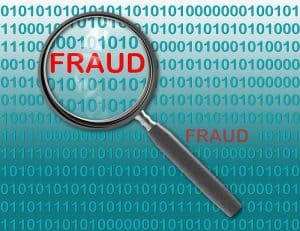Click here to get this post in PDF
 According to Serious fraud solicitors Rahman Ravelli, they had found 60% of consumers would stop shopping with a company if it had been associated with tax fraud. With brands like Starbucks having suffered low sales and reputation for tax fraud, it’s important for businesses to remain vigilant and know the signs to prevent accusations.
According to Serious fraud solicitors Rahman Ravelli, they had found 60% of consumers would stop shopping with a company if it had been associated with tax fraud. With brands like Starbucks having suffered low sales and reputation for tax fraud, it’s important for businesses to remain vigilant and know the signs to prevent accusations.
So how can businesses learn to challenge and tackle tax fraud accusations to avoid devastating effects on their reputation?
What is corporation tax?
Corporation tax is the tax that all public limited companies should pay on their annual profits. The main rate of UK corporation tax was lowered from 20% to 19% this year; making it the lowest in the G20.
How do companies manage to avoid paying corporation tax?
HMRC defines tax avoidance as:
“Bending the rules of the tax system to gain a tax advantage that Parliament never intended. It often involves contrived, artificial transactions that serve little or no purpose other than to produce a tax advantage. It involves operating within the letter – but not the spirit – of the law.”
HMRC lists tax avoidance schemes it is aware of on its website, along with advice for people who think they might be in a tax avoidance scheme or being offered one.
Ultimately, the responsibility lies with the directors of the company to ensure taxes are paid correctly.
As Aziz Rahman, Senior Partner at Rahman Ravelli explains:
“An HMRC investigation into your business taxes can have a negative long-term impact, creating distrust with your consumers and trading partners and landing you with a much higher tax bill.
Directors need to be aware of the warning signs of tax avoidance schemes and ensure they are asking the right questions of their accountants. For example:
- Can the accountant point to any recent legal judgements to prove that the tax avoidance scheme they are recommending will not be ruled to be illegal by the authorities?
- Has the accountant taken legal advice over this scheme? If so, what advice was given?
- Is the scheme doing what it says it does (for example, funding film projects) or is it simply a technical paper exercise to avoid tax?”
It is often the case that when an organisation is investigated for fraud, some people find that they need expert legal representation as individuals. In many such cases, the argument is made that those at the top are in the ideal position to perpetrate fraud. The logic used is that the senior people have the overview that is often needed to see how to carry out fraud and no one is above them to scrutinise their activities.
Sometimes the argument is extended so that they are guilty not because they physically carried out the fraud but because it was done on their watch, under their noses, and so they must have been complicit in it.
Defence case
If you are such an individual, any accusations of fraud made against you – or even the slightest suspicions involving you – have to be tackled quickly and forcefully. The person being accused must act immediately if they are to give themselves the strongest opportunity to successfully challenge any accusations. Appointing the right legal representative can not only give a person the best chance of influencing how the early stages of the investigations proceed, but it can also help reduce the potential cost in terms of lost time, money and reputation.
Minimising the effect
Fraud investigations are rarely short. But the right legal expertise can help minimise their effect. This is done by ensuring that investigators do not exceed their powers when it comes to matters such as the extent of a search warrant, seizure of potential evidence, handling of legally privileged material and prosecution disclosure of material.
Whether it is a corporation or an individual being investigated, doing nothing makes it easier for the authorities to do what they want. It may also mean that a valuable opportunity for the defence is lost. For example, the authorities will find it simpler to obtain a restraint order against a company, an individual or their family if no legal challenge to it is mounted. Not knowing your legal rights at the earliest possible stage can prove damaging.
Experience
The earlier legal advice is sought, the quicker your rights and your assets can be protected by challenging the assumptions and activities of investigators and prosecutors in areas such as search warrants, raids and restraint orders.
Fraud potential
Fraud only occurs when the conditions are right for it. Only a genuine, well-thought-out and well-publicised fraud policy will combat it. The policy must detail everyone’s responsibilities to report suspicions of fraud and has to create clear whistleblowing procedures.
It sounds straightforward but it appears that lots of large organisations are failing to either introduce or enforce such policies. And that may mean that many individuals in organisations may have to account for their actions to investigators.
Policy
Nobody has to create a fraud policy from scratch with little or no knowledge. Legal specialists can review the workings of an organisation, identify the areas where fraud could occur and help devise a policy to design away that potential for fraud. Similarly, business crime legal specialists will make themselves available to organisations that realise they may be dealing with fraud under their roof.
But if that has not happened, it will be the individuals in need of the legal expertise to challenge any accusations of fraud.
About the Author
 Azizur Rahman, Senior Partner at Rahman Ravelli: Since establishing Rahman Ravelli in 2001, Aziz’s expertise in serious and white-collar crime has seen both his and the firm’s reputation rise dramatically. His ability to coordinate national, international and multi-agency defences has led to success in some of the most significant business crime cases of this century.
Azizur Rahman, Senior Partner at Rahman Ravelli: Since establishing Rahman Ravelli in 2001, Aziz’s expertise in serious and white-collar crime has seen both his and the firm’s reputation rise dramatically. His ability to coordinate national, international and multi-agency defences has led to success in some of the most significant business crime cases of this century.
